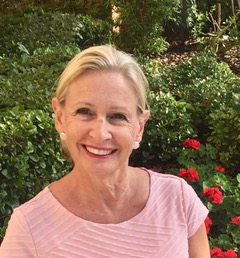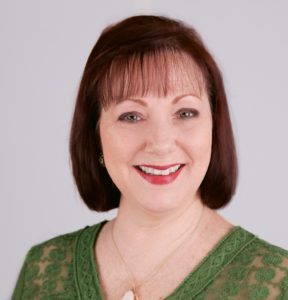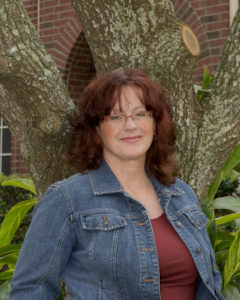 With depression rates climbing and listed as a leading cause of disability worldwide, author Patty Mason wants you to know that if you or someone you love is battling depression, you are not alone and there is hope. Patty knows the pain and devastation of depression, but she is no longer in that dark place. Her passion and deep-seated conviction to help others learn the truth and break the cycle, compels her to extend hope by earnestly sharing her story in her new book, Finally Free: Breaking the Bonds of Depression Without Drugs.
With depression rates climbing and listed as a leading cause of disability worldwide, author Patty Mason wants you to know that if you or someone you love is battling depression, you are not alone and there is hope. Patty knows the pain and devastation of depression, but she is no longer in that dark place. Her passion and deep-seated conviction to help others learn the truth and break the cycle, compels her to extend hope by earnestly sharing her story in her new book, Finally Free: Breaking the Bonds of Depression Without Drugs.
Linda: Patty, what a joy it is to be able to hear more of your story of how you overcame depression. I think as a nation, we’re all becoming more and more aware of its seriousness. But first, tell us, what led to your depression.
Patty: Depression has a root, so the depression began years before any symptoms became visible. Because of my abusive past, a counselor or psychologist might say the depression took root in childhood. My issues with anger certainly took root then. But from my perspective, the depression took root at age eighteen, when I started to leave the past behind and search for the things I thought would fill me and make me happy.
Linda: Hmmm. I’m intrigued. How would a search for fulfillment lead to depression?
Patty: Many things can cause depression: hormonal imbalance, a chemical inconsistency in the brain, life-altering events, such as the loss of a loved one or chronic illness, even bitterness and unforgiveness can lead to depression. It may seem odd to say a quest for fulfillment contributed to my depression, but to see that it’s possible all we have to do is watch the news to learn of another outwardly successful life that was cut short.
Linda: If the depression took root at eighteen, when did the symptoms appear? When did you know you were depressed?
Patty: At age thirty-five I was at the peak of life. I had a husband who loved me, three beautiful healthy children, a nice home, and a successful career, yet I was miserable. Even though I had everything I longed for and set out to find from the time I was eighteen, once I received it, it didn’t measure up—it couldn’t. All my hopes, dreams, and expectations left me empty.
The day I realized I was depressed, I was standing on stage in Dallas, Texas, before thousands, being recognized for one of the highest levels of achievement in the company. In that moment, I found myself thinking: Is this all there is? Is this what I shipped my children off to a babysitter for? Is this why I did the changing of the guard with my husband? In the middle of what should have been a magnificent moment, my soul began its plummet from this momentary high, to miserable depths of confusion. From that day on my life spiraled down a deep, dark tunnel.
Linda: When you realized you were depressed, what did you do? How did you deal with the  depression?
depression?
Patty: At first I hid my feelings and tried to fix myself. I did everything I could think of to get better. Nothing worked. I turned to alcohol for comfort and to cope. Plus, the alcohol made me sleepy, so this provided another form of escape. When I realized I couldn’t help myself, I turned to family and friends. Afraid of what others would think, this was difficult. How would they react when I told them about my extreme sadness, bouts of rage, and turning to alcohol? Would they judge me, criticize my feelings, or condemn my actions?
Since I hid everything prior to this point, when I finally started to talk about it, to my surprise no one judged, criticized, or condemned. Instead they didn’t believe me. Even my sweet husband didn’t get it. Every day I tried to tell him something was wrong. And every time he said, “Oh, you’ll get over it.”
Linda: How did the depression and your husband’s unwillingness to listen effect your marriage?
Patty: His response made me feel even more isolated and hopeless. What I needed from my husband was compassion. I needed an active listener with whom I could be open and transparent, someone to really hear what I was going through and try to comfort me. This is one of the reasons why I added a special section in the book for caregivers, along with practical tips on how to handle someone with depression. Depression is hard on everyone. If you don’t know what to do or how to help your loved one, you can make the depression worse.
Linda: Did you ever seek professional help? Did you take medication?
Patty: I did seek professional help, believing that if I could just get a pill I’d be fine. I called several doctors, but I would get responses like, “I’m sorry, we don’t handle that kind of depression.” Or, “I’m sorry we don’t take your insurance.” Since I couldn’t find a doctor to help me, I never went on medication.
Linda: What did you do when you couldn’t find help?
Patty: Not being able to help myself or find help from family, friends, or doctors, I felt so alone that I began to have thoughts of suicide. I actually convinced myself my family would be better off without me.
Linda: Oh no, and your husband didn’t see the signs that you felt this way?
Patty: No, he continued to believe I’d be fine. I knew my husband loved me, but he didn’t understand what I was going through. That’s the thing, if you’ve never experienced depression, you don’t understand the deep despair, or the irrational way the mind thinks.
Linda: How did you find healing? What happened?
Patty: In desperation I cried out to God. But I didn’t ask for healing, I asked for Him to take my life. I was suicidal, so I was still thinking death was the only way out. For months I prayed that way, but the turning point came when I felt as though I had been ground into the ashes from which I came.
One morning as I stood sobbing in the shower, I knew I had come to the end of myself. Instead of begging God to take my life, however, I cried out to God for His help. It was a simple prayer. I acknowledged that only He could help me, and then asked Him to help me. Through my sobs I heard a faint voice say, “Go to MOPS.” I didn’t want to go. I had been avoiding the meetings because of my depression, but I went as an act of obedience.
At the meeting the speaker, a soft-spoken, warm, and gentle older woman, grabbed my attention when she began to speak about what it’s like to have a lack of joy and no real purpose in life. I was intrigued and began hanging on every word as she talked about finding joy in Christ. At the end of her talk, I responded to her invitation to pick up some literature and ended up pouring out my heart to her. Even though she was a stranger I could feel the love of God reaching out from her to me. I wanted whatever she had to give me. I wanted to get rid of the pain.
After listening for several minutes, she touched me on the arm, and immediately the heaviness lifted from my spirit. I felt a freedom I’d never known before. As I turned to walk away I knew God had healed me.
Linda: This is an amazing story! But I want to back up a minute. You said earlier depression has a root. How important is it for us to understand where that root came from, and how do we get to that root?
Patty: We will not move forward until we understand the origin of the depression, anger, fear, insecurity, whatever emotional pain is keeping us bound.
Start by asking God to show you why you are feeling the way you are, and where it started? Don’t be afraid to ask yourself and God some difficult questions. Once the root is exposed, ask God to get it out. I talk about this in the book and the process we need to go through. It’s not easy. We will need to cooperate and work with God through the process; but, in the end, it is worth it! This is also why I talk about depression from a biblical perspective, its causes and its cures. We need to understand that not all depression is clinical or mental illness.
Linda: What is the one message you want people to take away from your book?
Patty: You are not alone and there is HOPE! Many mighty men and women of God—who knew God and walked with him—also knew what it was like to fall into a pit of despair and hopelessness. The good news: God didn’t leave them there. He cared for them, gave them what they needed, brought good out of their circumstances, gave them a new perspective, and delivered them.
Linda: Where can readers find a copy of Finally Free: Breaking the Bonds of Depression Without Drugs, or learn more about you or your ministry?
Patty: Visit our website at www.LibertyinChristMinistries.com. You can also ask for Finally Free at your favorite bookstore, or order it online. If you’d like a signed copy, we are offering a discount through our website.



















